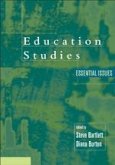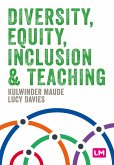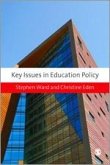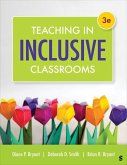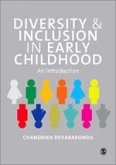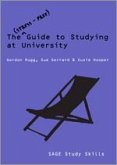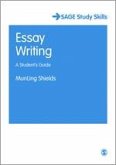What does inclusion really mean and what impact have inclusive approaches to education had on practice? Bringing together issues of theory, research, policy and practice from both the countries of the South and the North, this ground-breaking book provides a critical discussion of recent developments in the field of inclusive education. The authors consider developments, both in current thinking about the meaning of inclusion and in terms of policies and practices, in the context of education systems across the world and their differences and inter-relatedness. Topics covered include the increasing pressure on educators to develop a global policy agenda for inclusive education, the individual needs of children, the illusion of inclusivity and the importance of local contexts in determining policy. The book's international perspective illuminates common successes, failures and concerns. With case studies from Europe, the Caribbean and Australasia, the book also features chapter summaries, questions to facilitate critical thinking and discussion, case studies and suggestions for further reading. An essential read for anyone studying inclusive education, special educational needs, disability studies, social policy and international and comparative education, this book will ignite debate and enable the reader to develop a deep understanding of the issues. Ann Cheryl Armstrong is the Director of the Division of Professional Learning, Derrick Armstrong is Acting Deputy Vice Chancellor (Education) and Professor of Education and Ilektra Spandagou is a Lecturer in Inclusive Education. They are all based at the University of Sydney, Australia.
Hinweis: Dieser Artikel kann nur an eine deutsche Lieferadresse ausgeliefert werden.
Hinweis: Dieser Artikel kann nur an eine deutsche Lieferadresse ausgeliefert werden.
'This is a book that would be of interest and of value to those completing additional study in education as it contains theory, research, policy and practice and is complimented by chapter summaries, case studies and points for reflection and discussion' -
Learning and Teaching Update
'This is not a feel-good book, even though it hopes and believes in a better education and better lives for all. It is an exquisite balance between the theory, policy and practice of inclusive education. It confronts the difficulties with the term, and the bifurcation in policy and practice of ability/disability, advantage/disadvantage, normality/diversity. It provides a major commentary on education and its restricted and restrictive models, which exclude not just certain bodies but also what they embody' - Trevor Gale, Director, National Centre for Student Equity in Higher Education, University of South Australia
'This book is essential reading for all concerned with the issue of inclusive education, addressing key themes, ideas and existing understandings in a critical, innovatory and informative manner. Through cross-cultural insights and practices, questions of definition, the impact of globalisation and the unacceptable dominance of North over South interests and concerns are carefully highlighted and challenged. The authors have provided a lucid, readable, clear and critical contribution to our knowledge and understanding of this fundamentally important issue' - Emeritus Professor Len Barton, Institute of Education, University of London
'This book offers a powerfully argued and long overdue critique of international developments in inclusive education....SENCOs, or other education professionals who may wish to study or work in international contexts, and developing countries in particular, will learn much from this book' -
SENCO Update
Learning and Teaching Update
'This is not a feel-good book, even though it hopes and believes in a better education and better lives for all. It is an exquisite balance between the theory, policy and practice of inclusive education. It confronts the difficulties with the term, and the bifurcation in policy and practice of ability/disability, advantage/disadvantage, normality/diversity. It provides a major commentary on education and its restricted and restrictive models, which exclude not just certain bodies but also what they embody' - Trevor Gale, Director, National Centre for Student Equity in Higher Education, University of South Australia
'This book is essential reading for all concerned with the issue of inclusive education, addressing key themes, ideas and existing understandings in a critical, innovatory and informative manner. Through cross-cultural insights and practices, questions of definition, the impact of globalisation and the unacceptable dominance of North over South interests and concerns are carefully highlighted and challenged. The authors have provided a lucid, readable, clear and critical contribution to our knowledge and understanding of this fundamentally important issue' - Emeritus Professor Len Barton, Institute of Education, University of London
'This book offers a powerfully argued and long overdue critique of international developments in inclusive education....SENCOs, or other education professionals who may wish to study or work in international contexts, and developing countries in particular, will learn much from this book' -
SENCO Update


